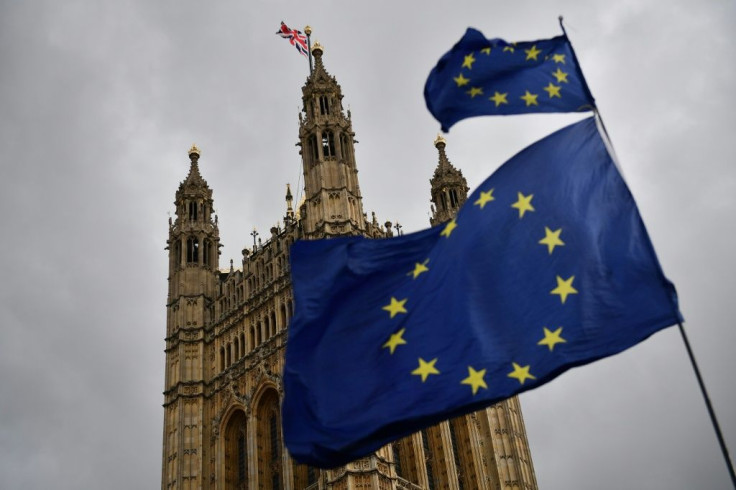Deal Or No Deal? UK's Limited Options As Brexit Deadline Looms

Hopes are rising that British Prime Minister Boris Johnson could get a Brexit deal in the coming days but it remains a tough ask -- and his options if he fails are limited.
Britain is scheduled to end its five decades of membership of the European Union on October 31.
Johnson says he will keep this date whatever happens but he is constrained by a law demanding he ask the EU to delay Brexit if he fails to reach a deal next week.
Brexit deal
A draft deal was agreed last year but British MPs rejected its arrangements for keeping open the border between British Northern Ireland and EU member Ireland.
After taking office in July, Johnson proposed a new plan earlier this month but it faced a cool response in Brussels.
A meeting with Irish Prime Minister Leo Varadkar on Thursday seemed to shift the mood, with both saying there was a "pathway" to a deal by the end of October.
Work remains to bridge what were significant gaps between them ahead of an EU summit starting next Thursday -- the last before the Brexit deadline.
Even if they reach agreement, Johnson must still get it through a hostile House of Commons in London. His aides say this is possible but he has no majority among MPs.
Brexit delay
The default legal position is that Britain leaves the EU on October 31 unless it asks to delay, and the other 27 member states agree.
Johnson has repeatedly said he will not seek what would be the third extension of a process that began when British voters narrowly backed Brexit in 2016.
But the so-called Benn Act passed in parliament in September orders him to ask for a three-month delay if MPs have not agreed to a new deal or approved leaving the EU without a deal, by October 19.
Johnson has called a special session of parliament for October 19 -- the first Saturday sitting for 37 years -- in which those votes are expected to take place.
'No-deal' Brexit
Johnson and his team have hinted they may try to find a way around the Benn Act, including by forcing the courts to intervene, to allow a "no deal" Brexit on October 31.
But this scenario is feared by the markets and businesses across both Britain and Europe.
The government's own forecasts show Britain potentially running out of food and vital medicine -- and seeing riots on the streets.
The problems stem from decades of interdependence that require goods and services to flow freely and without customs checks.
Businesses fear that even brief border inspections would plug up trade routes and grind their operations to a halt.
Brexit supporters counter that the damage would only be felt briefly and is worth the price of Britain having the freedom to set its own policies down the line.
The dangers of such a rupture led the EU to accept two Brexit delays earlier this year, and despite their growing frustration at the situation, would likely see them grant a third if Johnson asks.
Early election
With Johnson's government hamstrung by his lack of majority in parliament, an early election seems inevitable.
He tried to force one before Brexit but opposition parties refused, fearing he would use any victory to leave the EU without a deal.
Labour leader Jeremy Corbyn says that once that option is off the table, he will support an election.
Speculation is focused on a poll in November. However, there are growing reports that some Labour MPs might oppose this, preferring to wait until Brexit is resolved.
Johnson needs the support of two-thirds of the 650 MPs in the House of Commons to call an early election.
It could also be triggered by a vote of no-confidence in Johnson's government or if the prime minister himself resigns, but the opposition would then have 14 days to try to find an alternative government.
Second referendum
Talk of re-running the 2016 referendum has increased in recent months, with opinion polls showing a shift in public opinion towards staying in the EU.
However, Britain remains deeply divided over the issue, and there is not yet clear support for the idea of a new Brexit vote in the House of Commons.
Some advocates of a "People's Vote" could try to force the issue onto the Commons agenda on October 19.
© Copyright AFP 2024. All rights reserved.





















